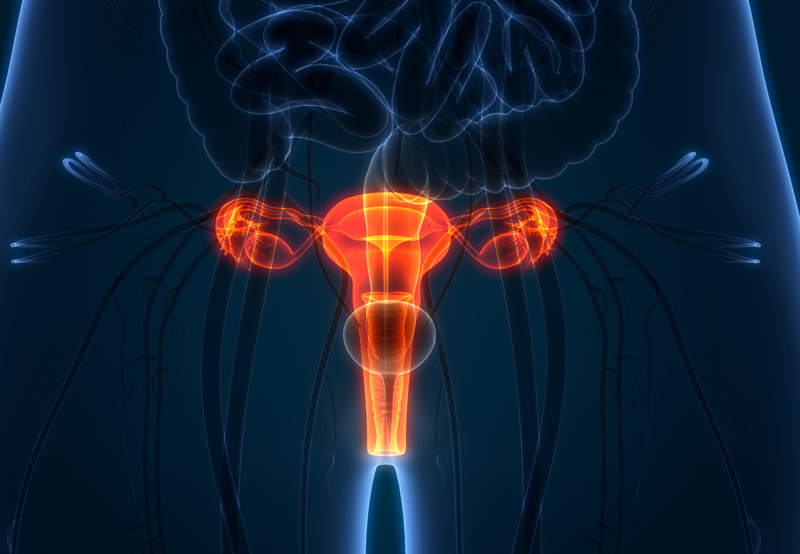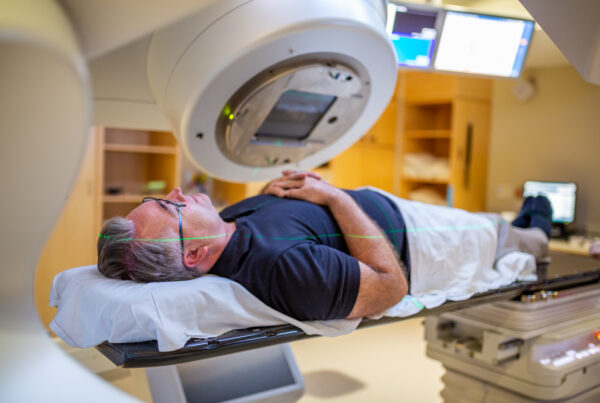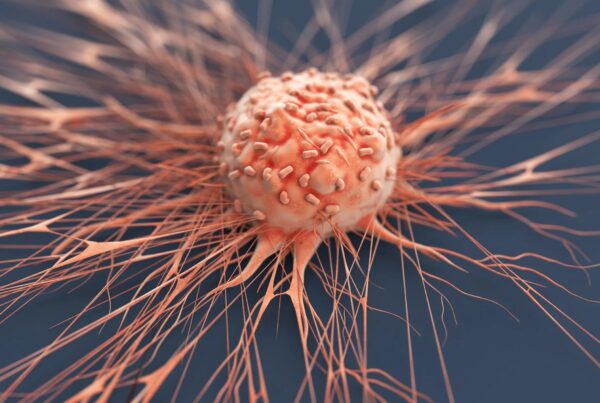In the precision of anatomy and the immense scientific importance, reproductive organ surgery lies at the heart of the balance between health, function, and aesthetics.
These specialties—for both men and women—aim to repair congenital deformities, treat hereditary or acquired diseases, support sexual and reproductive health, and restore patients’ normal lives.
These surgeries are not limited to reproductive problems but extend to treating tumors, infections, congenital deformities, and correcting sexual functions.
At the forefront of this field, Liva Hospital in Turkey stands out as an international center offering advanced techniques from endoscopy and robotics to highly precise multidisciplinary surgeries.

Male Reproductive Organ Surgery
Male reproductive organ surgery covers a wide range of conditions affecting the testes, epididymis, seminal ducts, seminal vesicles, penis, and scrotum.
These surgeries aim to restore function, alleviate symptoms, and treat diseases that may threaten life or fertility. The most prominent conditions requiring surgical intervention include:
- Male Infertility: Infertility may result from blockages in the seminal ducts or varicocele, which is an enlargement of the veins inside the scrotum affecting sperm production and quality.
Micro-surgery is performed to repair seminal duct blockages or ligate varicoceles to increase the chances of conception. - Testicular Cancer: This is the most common type of cancer among young men. Surgical removal of the affected testicle (orchiectomy) is the primary treatment and is often highly effective in early stages.
- Penile Cancer: This is rare but requires surgical removal of the affected part of the penis, which may be partial or complete, with the possibility of reconstruction.
- Hydrocele and Spermatocele: A hydrocele is a collection of fluid around the testicle, while a spermatocele is a cyst filled with sperm that forms in the epididymis. Both are often benign and may require surgery if they cause pain or discomfort.
- Undescended Testis: A congenital condition where the testicle fails to descend into the scrotum, requiring surgical fixation of the testicle (orchiopexy) in childhood to reduce the risk of infertility and testicular cancer.
- Peyronie’s Disease: Where scar tissue develops inside the penis, causing painful curvature and difficulty with erection. Surgery may include removing scar tissue or grafting the penis.
- Severe Erectile Dysfunction: In cases unresponsive to non-surgical treatments, penile implants may be considered.
Female Reproductive Organ Surgery
Female reproductive organ surgery specializes in treating conditions affecting the uterus, ovaries, fallopian tubes, vagina, and vulva.
These surgeries play a crucial role in women’s general health, fertility, and sexual quality. The most prominent conditions treated surgically include:
- Female Reproductive Organ Tumors: Such as ovarian cancer, uterine cancer, cervical cancer, and vaginal or vulvar cancer.
Surgical removal is often the first line of treatment and may involve hysterectomy, oophorectomy, or other parts of the reproductive system. - Uterine Fibroids: These are very common benign tumors in the uterus and may cause severe bleeding, pain, or pressure on adjacent organs. Surgeries include removing fibroids while preserving the uterus (myomectomy) or hysterectomy in severe cases or when there is no desire for future childbearing.
- Endometriosis: A condition where tissue similar to the uterine lining grows outside the uterus, causing severe pain and infertility. Surgery may involve removing these ectopic tissues.
- Ovarian Cysts: Most are benign and resolve on their own, but surgery may be required if they are large, painful, or if there is suspicion of their nature.
- Pelvic Organ Prolapse: Occurs when pelvic organs (such as the bladder, uterus, or rectum) descend from their normal position into the vagina, causing significant discomfort and problems with urination or defecation. Surgeries are performed to lift and stabilize these organs.
- Female Infertility: May result from blocked fallopian tubes or ovarian problems. Micro-surgeries include repairing fallopian tubes or removing adhesions.
- Congenital Reproductive Organ Anomalies: Such as a bicornuate uterus or a septate vagina, which may affect fertility or cause problems during pregnancy and childbirth.
Modern Surgical Techniques
Reproductive organ surgery for men and women has witnessed amazing developments thanks to modern surgical techniques aimed at increasing precision, reducing pain, and accelerating recovery time.
The most prominent of these techniques include:
- Laparoscopic Surgery: Also known as minimally invasive surgery, where small incisions are made in the abdomen to insert a camera and precise surgical instruments.
It is widely used in hysterectomy, fibroid removal, endometriosis treatment, varicocele repair, and others. - Robotic Surgery: Represents a leap in precision, where the surgeon controls precise robotic arms from a control console.
It provides magnified 3D vision and superior maneuverability, making it ideal for complex procedures such as radical prostatectomy, hysterectomy, and pelvic organ prolapse repair. - Microsurgery: Uses a high-magnification surgical microscope and extremely delicate instruments to perform operations requiring extreme precision, such as vasectomy reversal or repair of fallopian tube blockages.
- Hysteroscopic Surgery: Used to diagnose and treat problems inside the uterus, such as removing polyps or small fibroids, or treating adhesions, without the need for external incisions.
- Laser: Laser is used in some surgical procedures on the reproductive system, such as removing certain lesions or small tumors.
- Reconstructive and Grafting Techniques: Used to reconstruct damaged or deformed tissues, such as urethral or vaginal repair.
These modern techniques significantly contribute to improving surgical outcomes and reducing complications and are offered by specialized centers like Liva Hospital in Turkey.
Challenges and Potential Complications
Despite significant advancements in reproductive organ surgery, it, like any surgical procedure, is not without some challenges and potential complications that the patient and medical team must be aware of and prepared to handle.
General complications of any surgery include:
- Bleeding: During or after surgery.
- Infection: At the surgical site or inside the abdomen.
- Blood Clots: In the legs or lungs.
- Damage to Adjacent Organs: Especially blood vessels, nerves, intestines, or bladder, due to their proximity to the reproductive organs.
Specific complications of reproductive organ surgery may include:
- Changes in Sexual Function: Such as erectile dysfunction in men or pain during intercourse in women, which may be temporary or permanent.
- Infertility: Some surgeries may affect fertility, especially if major reproductive organs are removed.
- Changes in Urination: Such as urinary incontinence or difficulty urinating.
- Recurrence of the Problem: Especially in cases of tumors or organ prolapse.

Final Word
Reproductive organ surgery for men and women is an advanced and crucial medical field, opening new horizons in treating a wide range of conditions that affect an individual’s sexual, reproductive, and general health.
Through advanced surgical techniques, such as laparoscopic and robotic surgery, doctors today can provide effective solutions for many problems that previously posed a significant challenge.
Leading medical centers, like Liva Hospital in Turkey, which invest in human expertise and modern technologies, are invaluable in providing the best possible care to patients, contributing to improving their quality of life, restoring their functions, and achieving the dream of conception for many.
Frequently Asked Questions
Will reproductive organ surgery affect my ability to have children?
This largely depends on the type and reason for the surgery. Some surgeries, like hysterectomy or orchiectomy, directly affect reproductive ability. However, other surgeries aim to improve fertility (such as repairing varicocele or duct blockages).
What is the expected recovery time after reproductive organ surgery?
Recovery time varies based on the type of surgery (open, laparoscopic, robotic), its complexity, and the patient’s general health. It can range from a few days to several weeks for returning to daily activities, and complete recovery may take longer.
Will these surgeries affect my sexual life?
In some cases, there may be a temporary or permanent impact on sexual life. Surgeons aim to preserve sexual function as much as possible. Any sexual concerns should be discussed with your doctor before surgery.
Are all reproductive organ surgeries performed using minimally invasive techniques?
No. Although minimally invasive surgery (laparoscopic or robotic) is the preferred option in many cases due to its benefits, some complex or large cases may still require traditional open surgery. The decision depends on the surgeon’s evaluation.
What is the importance of follow-up after reproductive organ surgery?
Follow-up is essential to monitor recovery, detect any early or late complications, and track treatment effectiveness, especially in cases of tumors to ensure no recurrence.
Can reproductive organ problems be treated without surgery?
Yes, in many cases, non-surgical treatments can be initiated, such as medications, hormonal therapy, lifestyle changes, or physical therapy.



